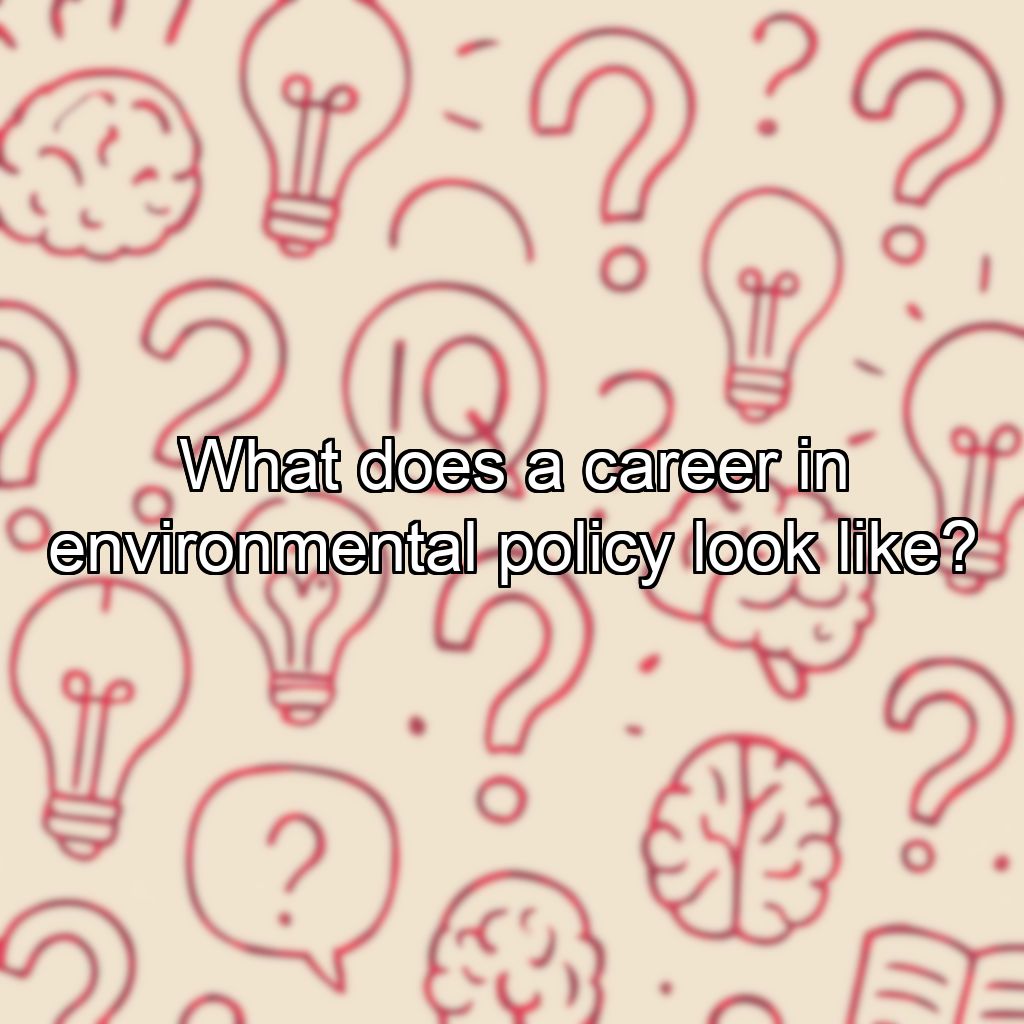What does a career in environmental policy look like?

Career in Environmental Policy
A career in environmental policy involves working to shape, implement, and evaluate regulations, laws, and initiatives that address environmental issues such as climate change, pollution, natural resource management, and conservation.
Key Responsibilities
- Research & Analysis: Conducting research on environmental issues, analyzing data, and evaluating the effectiveness of existing policies.
- Policy Development: Drafting new policies, regulations, and legislation to address environmental challenges.
- Advocacy & Lobbying: Working with government agencies, non-profits, or private organizations to advocate for environmental initiatives and influence lawmakers.
- Stakeholder Engagement: Communicating with the public, industry representatives, scientists, and other stakeholders to gather input and build support for policies.
- Implementation & Enforcement: Ensuring that policies are properly implemented and enforced, sometimes coordinating with regulatory agencies.
Typical Workplaces
- Government agencies (local, state, federal)
- Non-governmental organizations (NGOs) and advocacy groups
- Consulting firms
- International organizations (e.g., United Nations, World Bank)
- Academic and research institutions
Required Skills and Education
- Education: Usually requires a bachelor’s or master’s degree in environmental science, public policy, law, or related fields.
- Skills: Strong analytical, research, and communication skills; understanding of environmental science and law; ability to collaborate and negotiate.
Career Progression
- Entry-level: Policy analyst, research assistant, program coordinator.
- Mid-level: Policy advisor, project manager, environmental consultant.
- Senior-level: Policy director, legislative affairs manager, executive roles.
A career in environmental policy offers the opportunity to make a meaningful impact on society and the planet by helping shape laws and practices that protect the environment.